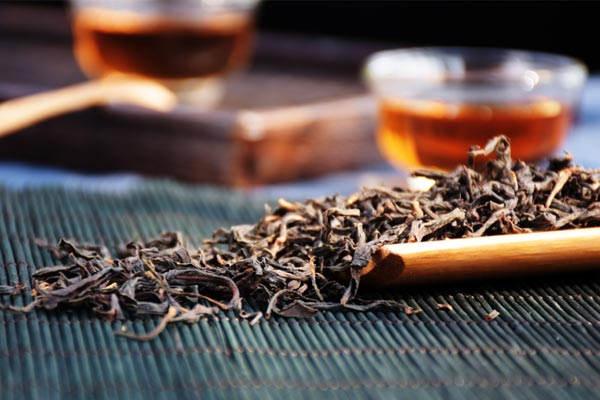If tea brewed in the morning is left unfinished and left overnight, can it still be consumed?
How long does it take for tea to be steeped overnight? Is it 12 hours or 24 hours?
Recently, a research team from Nanjing Medical University in China published a research paper titled "Safe to steep? Temporal shifts in microbial viability and functional metabolites define the safety of prolonged dandelion tea" in the journal Medicinal Plant Biology. The paper addressed these questions through a series of experiments.

◆ Research Results
01. The tea's appearance changes
The researchers brewed 5 grams of dandelion tea with 500 milliliters of boiling water and then left it uncovered at room temperature. Samples were then taken for analysis after steeping for 1 hour, 12 hours, 24 hours, and 36 hours.
The first intuitive impression is that the tea soup's quality gradually deteriorates with increasing steeping time.
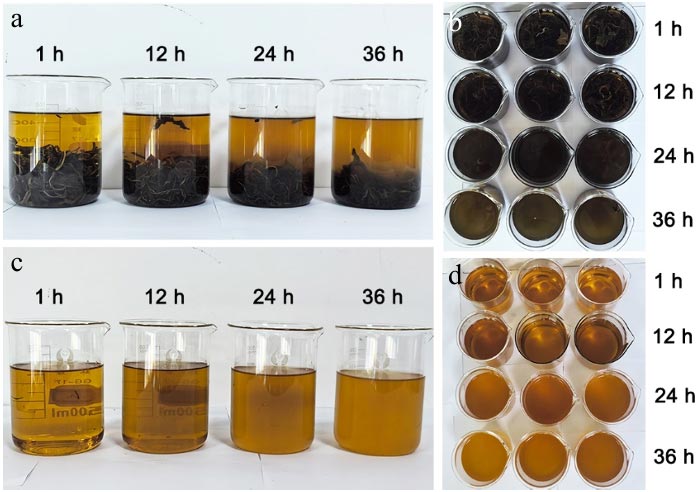
Dandelion Tea Changes with Steeping Time
- Dandelion Tea, steeped for just one hour, is dark in color and highly transparent, appearing refreshing.
- After 12 hours, the color darkens slightly but remains transparent, appearing perfectly normal.
- However, after 24 hours, the tea's color suddenly palers and becomes cloudy, significantly reducing its transparency.
- After 36 hours, the tea becomes almost opaque, making it easily visible to the naked eye that it is no longer fresh.
02. Tea Soup Composition Changes
The researchers used instruments to analyze the tea soup's composition. Logically, various substances should become increasingly concentrated with increasing steeping time.
However, beneficial ingredients such as phenols, amino acids, and flavonoids decrease, while other harmful ingredients increase.
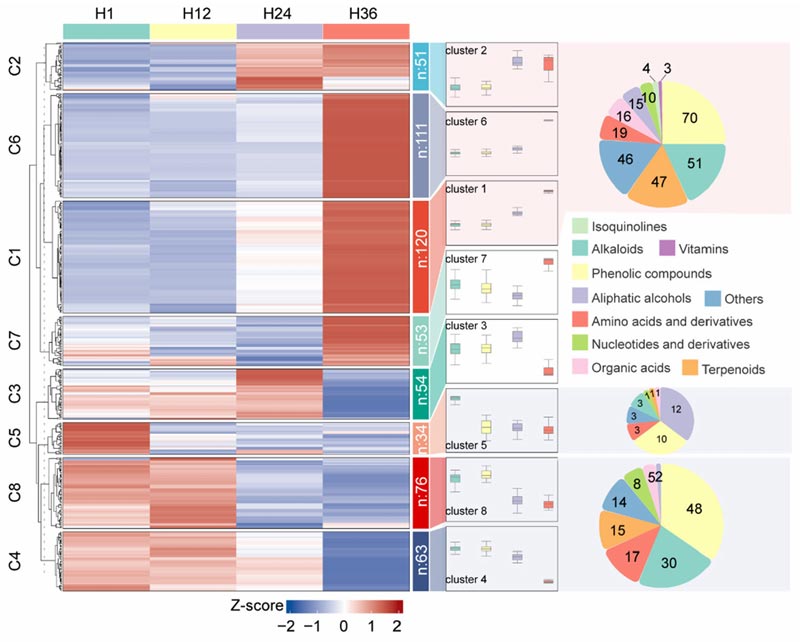
Changes in Various Substances in Dandelion Tea with Steeping Time
For example, flavonoids with strong antioxidant properties (such as luteolin and naringenin) decrease significantly after 24 hours. Leucine and proline, which provide nutrients and contribute to the tea's umami flavor, are almost half gone after 36 hours.
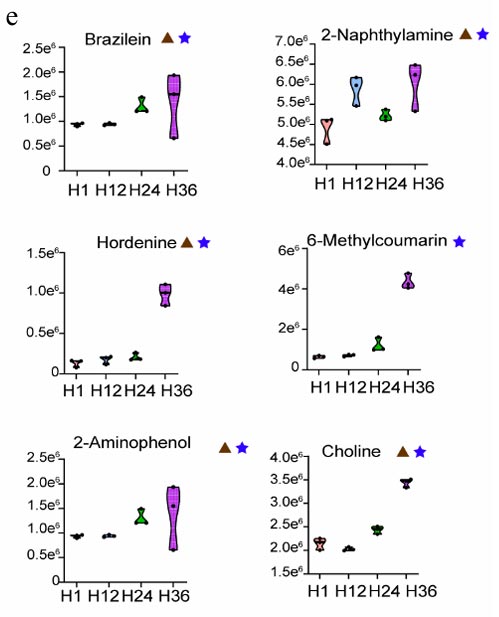
The levels of some bitter (triangle) and harmful (star) substances in the tea increase.
Conversely, 6-methylcoumarin, a potentially harmful substance, increases by 50% with long-term steeping, reaching a concentration exceeding the safety threshold for food additives.
Tannic acid, which makes tea astringent and can irritate the stomach and intestines in excess, increases by 15% with long steeping, worsening the tea's taste and increasing safety risks.
Simply put, the longer Dandelion Tea is steeped, the less nutritious it is and the greater its safety risks.
03. Microbial Changes
Another factor that affects tea quality is microbial growth. Researchers found that tea brewed just one hour prior had the richest microbial diversity, with a balanced distribution of bacteria from multiple phyla.
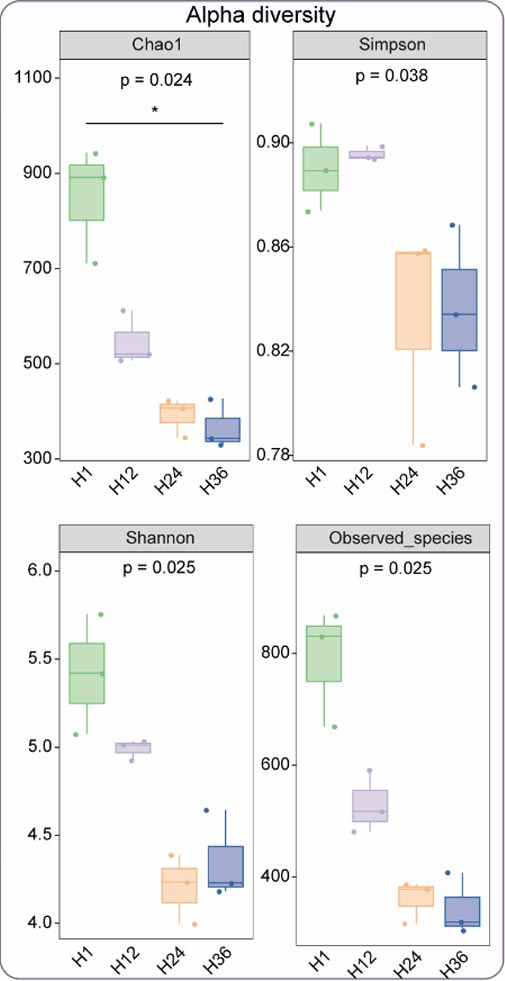
Microbial diversity decreases with steeping time.
As time progressed, the number of microbial species decreased, until, at 36 hours, only a few dominant bacteria remained, with Bacillus species being the most prominent.
Although the researchers did not provide evidence as to whether these Bacillus species were beneficial or pathogenic,
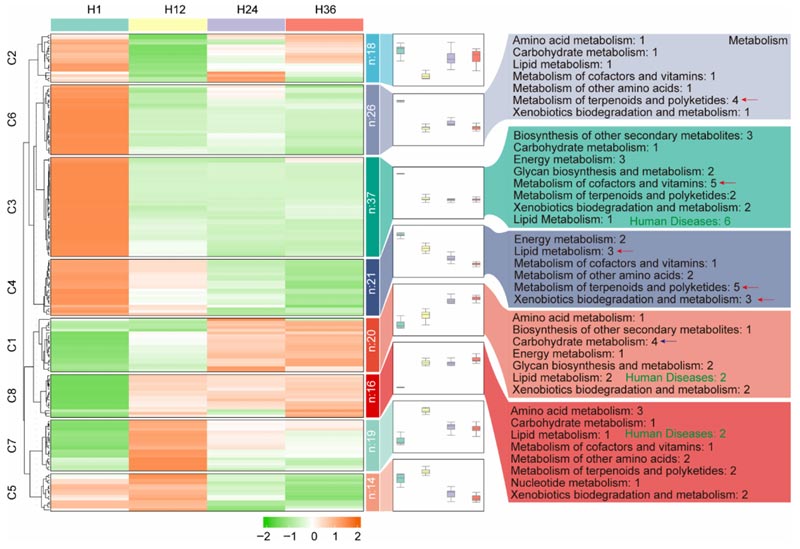
Microbial metabolic function changes with steeping time.
What is certain is that prolonged steeping weakens microbial synthesis of vitamins and beneficial secondary metabolites, potentially preventing the breakdown of harmful substances, leading to their accumulation.
◆ Conclusion
- Although this study focused on Dandelion Tea, the findings are still of some guiding significance.
- When brewing tea, avoid brewing too much at once and try to finish it within 12 hours.
- Do not leave unfinished tea open on the table. Seal it promptly and refrigerate it for no more than 24 hours.
- If the tea becomes cloudy or has an unpleasant odor, do not drink it, even if it's been less than 12 hours.

%20--%3e%3c!DOCTYPE%20svg%20PUBLIC%20'-//W3C//DTD%20SVG%201.1//EN'%20'http://www.w3.org/Graphics/SVG/1.1/DTD/svg11.dtd'%3e%3csvg%20version='1.1'%20id='图层_1'%20xmlns='http://www.w3.org/2000/svg'%20xmlns:xlink='http://www.w3.org/1999/xlink'%20x='0px'%20y='0px'%20width='256px'%20height='256px'%20viewBox='0%200%20256%20256'%20enable-background='new%200%200%20256%20256'%20xml:space='preserve'%3e%3cpath%20fill='%23FFFFFF'%20d='M194.597,24.009h35.292l-77.094,88.082l90.697,119.881h-71.021l-55.607-72.668L53.229,232.01H17.92%20l82.469-94.227L13.349,24.009h72.813l50.286,66.45l58.148-66.469V24.009z%20M182.217,210.889h19.566L75.538,44.014H54.583%20L182.217,210.889z'/%3e%3c/svg%3e)



